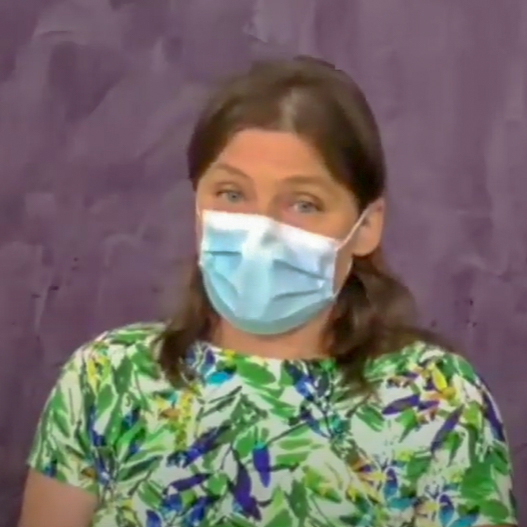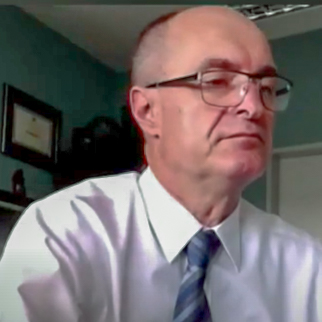
Lucie Ondřichová, Medical Tribune
„NCCP is an instrument that will get to a discussion -one that will move things forward- all stakeholders, all those who have something to say to the problem.“

Prof. Eduard Vrdoljak, Faculty of Medicine, University of Split
The plan for the Czech Republic should be drafted for the Czech Republic specifically, meaning the Czech Republic should not copy a plan designed for a different country. Key challenges are generally a lack of detailed plan and budget. Other challenges include precision medicine, multidisciplinary medical teams in diagnostics and treatment. Also, every 73 days the amount of information on cancer doubles, which is very difficult to follow. The knowledge exists to improve outcomes and small countries can do big things.
„Major improvement in the fight against cancer could be achieved through investment in oncology infrastructure and organization (comprehensive databases, monitoring and reporting, RWD gathering).“
Key stakeholders in creating the National Oncology Plan are patients, medical experts (associations, orgnizations), politicians/public sector, Ministry of Finance providing finance and Ministry of Health administering the plan.

Deputy Health Minister Alena Šteflová
Payers and insurance companies also have to be among stakeholders.
„Sometimes real fulfilment of big, really complex programs is difficult to meet, but the steps we have been making lead to the fulfilment. The question is if we really need to start and put on paper something that is running to a certain degree, but it is surely a possibility to sit down with all those who should participate and again go through set models and international experience, to correct and strengthen the parts that do not work well.“

MP, former Minister of Health Adam Vojtěch
The foundation of the oncology system based on centrally administered complex oncology care network is firm. The challenge is better connection of primary care with oncology care. The reform has started-off well.
„The plan should be created, it is feasible, workable. The foundation of oncology care (in the Czech Republic) is built well and it is now time to develop it further, for example there is the issue of accessibility of modern treatment, modern care. We have proposed an amendment to the act on public health insurance, on better accessibility of innovative medicaments - very important. So I think there is a number of areas where work has been underway and now we need to put this together in one document, clearly set priorities and place within the health care system.“

Prof. Jiří Mayer, Faculty of Medicine, Masaryk University Brno
Hematology-oncology should be included in NCCP. The level of hematology-oncology in the Czech Republic is relatively good, but the capacity, infrastructure is insufficient to maintain the care.
„Death rates in some segments are decreasing, hematology-oncology is a clear example, in some diseases…but the number of patients is growing and a number of acute diseases have become chronic with patients still tied to the care centers...These centers are underfinanced.“

Ivana Plechatá, HOP
It is important that such a plan becomes a priority at the government level, because that will determine the amount of resources made available for this area in the future. We have the advantage of data availability; the data can be used to assess the effectiveness of the care nation-wide and in regions, as well as for benchmarking witin the EU and globally.
HOP can contribute to chapters dealing with
„We would like the update of the plan to be a society-wide theme.“
The next step is to identify the key indicators that will measure how successfully the plan will improve treatment both in terms of outcome and efficiency. Professor Vrdoljak proposed a ratio of patient health over system cost that could serve as the headline measures. He also mentioned issues such as waiting time before treatment, percentage of population undergoing preventive screening, and length of new treatment approvals as key factors in achieving the health/efficiency ratio.
Cancer is a major public health issues in Europe affecting millions of citizens. Based on WHO and EC recommendations its member states should adopt a national cancer control plan aimed at reducing cancer incidence and mortality and improving cancer patients’ quality of life. According to Professor Vrdoljak, disparities in prevention and care, insufficient investment, incomplete and delayed implementation of cancer programs can lead to a loss of lives. Projections show that the incidence of cancer will almost double by 2035.
Key challenges of NCCP is a lack of detailed plan and budget. A role of the NCCP is to express national priorities and strategies in the area of prevention and treatment of cancer, taking into account the existing legal and institutional framework of cancer care, serving as a platform for national co-ordination, in four key areas: prevention, early diagnosis, treatment, rehabilitation and palliative treatment. „The establishment of NCCP will enable the government to formualte a comprehensive and systematic approach of the cancer problem, and will ensure an efficient and rational use of available resources. Priorities are cost-effectiveness, equity, affordability and sustainability which can be achieved only by integrating the plan with the economic evaluation,“ said Professor Vrdoljak based on the experience with the launch of NCCP in Croatia.
The Ministry of Health confirmed their commitment to NCCP and to creating a working group comprising all stakeholders. „Let us continue. The success is there for those who are prepared – forwarned are forarmed,“ said Deputy Health Minister Alena Šteflová.
According to MP and former Health Minister Adam Vojtěch, Prime Minister Babiš earlier mentioned oncology among priorities and this applies also to the advisory body, the so-called Health Care NERV (ZERV), that MP Vojtěch is a member of. „I am ready to help, also from the position of the MP in the Chamber of Deputies, to create the National Oncology Plan. I believe it would be beneficial. I am ready to devote my time and capacity. “
AmCham focus will be on 1) establishing measurable quality standards to improve quality and reduce regional variances in performance (and tying these measurable standards to procurement), 2) establishing prevention programs in major companies (with incentives for lower insurance costs), and 3) increase the amount of commercialized research in oncology. We plan further roundtables to further discuss these issues.
Thank you to all participants, as well as Lucie Ondřichová of Medical Tribune for moderating and Ivana Plechatá of HOP for insights and co-organizing.